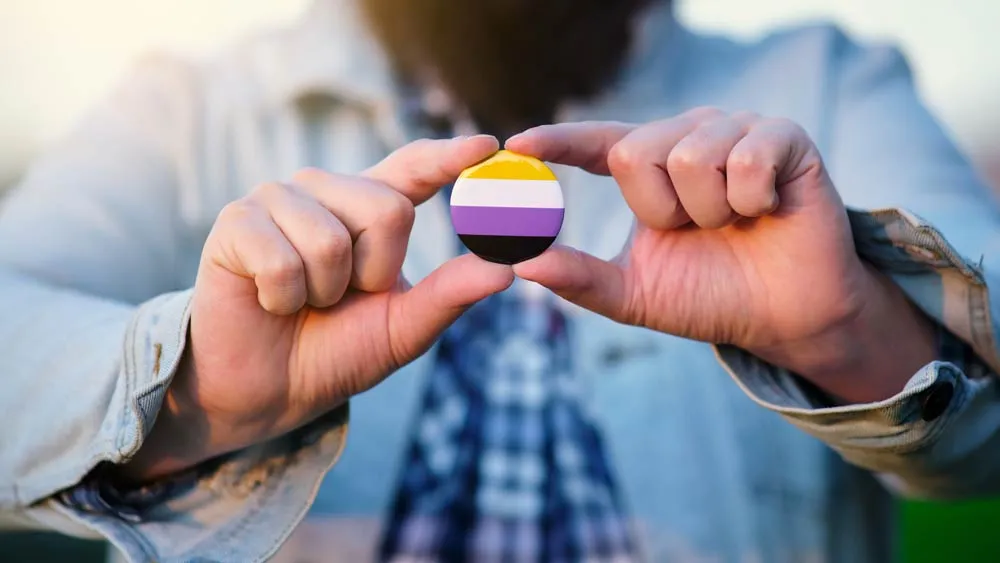March 17, 2011
Irish Official: NYC's Anti-Gay St. Pat's Parade 'Not Irish'
Kilian Melloy READ TIME: 4 MIN.
Word from the Old Country is that the annual St. Patrick's Day parade in New York is "not Irish" because it bans gays and lesbians, reported Advocate.com on March 17.
The new Irish Foreign Minister, Eamon Gilmore, told a New York gathering of gay equality advocates of Irish descent at the Irish consulate that "Exclusion is not an Irish thing"--and that includes the exclusion of GLBTs. Gilmore said that banning gays and lesbians from openly participating in the parade was a departure from what it means to be Irish in the first place.
"What these parades are about is a celebration of Ireland and Irishness," Gilmore declared, according to a March 17 Irish Voice article. "I think they need to celebrate Ireland as it is, not as people imagine it. Equality is very much the center of who we are in our identity in Ireland."
Ireland's new government came to power just week following the most recent general election. The new government also includes two openly gay members of the Irish D�il, or parliament. Dominic Hannigan and John Lyons, both with Ireland's Labor Party, are the first two openly gay men to be elected to the lawmaking body.
Their elections reflect a growing acceptance of gays in the country; Hannigan's constituency is rural, but his sexuality did not bother voters, Irish Central reported on March 3.
"The election of both Dominic Hannigan and John Lyons as [members] for the Labor Party is a step forward for equality in Ireland and we look forward to their contributions in the D�il," said Labor LGBT co-chair Paul McConnell.
The precedent of openly gay candidates being elected to the D�il was set following openly gay candidates being elected to the Irish Senate. An openly gay senator, David Norris, is favored to become the new Irish president when the country's current leader, Mary McAleese, finishes her term.
Marriage equality may not be far behind, noted the Irish Central article: The National Lesbian & Gay Federation has begun a campaign to convince both chambers of the government's legislative branch to work toward full legal parity for gay and lesbian families.
Gilmore's comments to gay community leaders in New York reflect a new day in Ireland, said the Irish Voice.
"Ireland has changed," noted Gilmore. "It was not that long ago that homosexuality was decriminalized in Ireland. I don't think it's courageous at all to have this meeting. It's a normal part of the work we should be doing.
"For the majority of Irish people being gay is no longer an issue," Gilmore continued. "That's not to say that there isn't resistance--I expect that if we come to the point of same sex marriage at the convention of course the extreme right will push back against it. But issues of equality are issues that have to be taken on."
Those issues may end up a subject that the framers of a new Irish constitution take on. At the moment, the only constitution in the world that specifically grants gays and lesbians equality before the law is that of South Africa. Gilmore indicated that Ireland might follow South Africa's example.
"Our present constitution is very robust but it was written in the 1930's," said Gilmore. "We feel there a need for a fresh look."
Though many St. Patrick's Day parades around the nation forbid open participation by gays and lesbians, two in particular stand out: New York's parade, and the parade in South Boston. The latter event's organizers, the South Boston Allied War Veterans Council, went to court to keep GLBT participants out, and the case went all the way to the U.S. Supreme Court. As a private organization, the South Boston Allied War Veterans Council is within its rights to bar participants on the basis of their sexuality, the Supreme Court ruled in 1995.
For the 2011 parade, Boston gays and lesbians of Irish descent were welcome to join a second, separate parade. The South Boston Allied War Veterans Council denied permission to Veterans for Peace to participate in their parade, so Veterans for Peace obtained its own permit for a "Peace Parade" along the same route. The two parades must maintain a distance of at least one mile from one another.
Philip Wuschke, Jr., the lead organizer of the original parade, pointed out that the event was not "anti-gay," saying, "We don't ban gays and lesbians from the parade." At issue was not the sexual orientation of marchers, but rather the sorts of signs they might carry. "This is not a gay pride parade," added Wuschke.
Massachusetts GLBT equality advocacy group Join the Impact has stated that it will participate in the second parade, the Globe article said. The group intends to display placards with pro-equality messages and to hoist rainbow flags.
"We would prefer to be in the main parade, but if anybody is being left out we're going to stand with them because of our history," Join the Impact co-chair Ann Coleman said.
A March 10 Boston Globe article noted that Boston Mayor Thomas Menino had boycotted the original parade because of its exclusion of gay groups. But the mayor had no plans to take part in the new parade, either, according to spokesperson Dot Joyce.
"As always, the city is focused on providing a safe and enjoyable parade day for everyone, and it sounds like there's going to be something for everyone in South Boston that day," said Joyce.
Kilian Melloy serves as EDGE Media Network's Associate Arts Editor and Staff Contributor. His professional memberships include the National Lesbian & Gay Journalists Association, the Boston Online Film Critics Association, The Gay and Lesbian Entertainment Critics Association, and the Boston Theater Critics Association's Elliot Norton Awards Committee.







